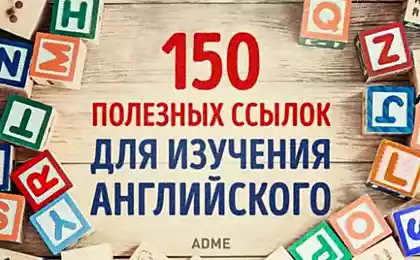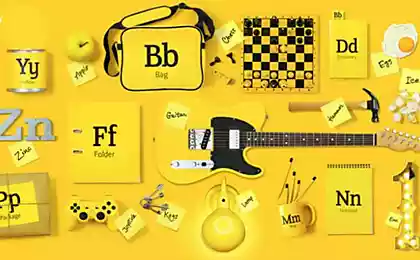153
The English teacher blushed when I brought him a list of words not in the textbook.
Know English At a decent level, it is simply necessary for comfortable travel. And we are talking not only about trips to other countries, but also about traveling on the Internet. And watching a good movie or series with an original audio track is much more pleasant than listening to even a very high-quality translation.
But when faced with live English, you quickly realize that the knowledge from the textbook is completely lacking. And many of the words that the characters on the screen repeat over and over again, never even caught your eye.
And today's edition. "Site" Here are some interesting words in English that are almost not found in standard textbooks. However, in the real speech of English-speaking people, these words come across at every step.

Interesting words in English
Any student knows that this word means blue. But in conversation, it can talk about emotions. And in that context, "blue" would mean sadness. And instead of the well-known "sad" even in songs often occurs "blue" - "sad". "Hubby."
Translated as “husband” or even “husband”. But “hubby” is not found in textbooks, unlike the familiar word for each of us “husband”. But now you won’t be surprised when you hear that word in a movie or when you see it in an informal email.
"Receipts"
If you look exclusively in the textbook, we get the word “check” in translation. Although in slang speech "receipts" is often synonymous with the word "proofs" - "proofs". Therefore, do not be surprised if in response to some controversial statement you will be asked to “checks”. "Mayo."
If someone, learning English, interested in the topic of cooking, you will definitely come across the word “mayonnaise”. As you can easily guess, this is about everyone’s favorite mayonnaise. But in conversation, people really like to shorten and simplify everything. Therefore, the short version in the form of “mayo” caught on quite quickly.
"Veggie."
Some readers probably know that “veggie” is a common abbreviation of the word “vegetarian”. But more recently, English-speaking people have been shortening the rather long word “vegetable” in this way. Convenience comes first.
Of course, before learning new-fangled words and slang phrases, you should master. Therefore, textbooks that teach correct (!) English can hardly be any complaints. But at the same time, it is worth knowing some popular colloquial expressions. Especially since it's quite interesting.
But when faced with live English, you quickly realize that the knowledge from the textbook is completely lacking. And many of the words that the characters on the screen repeat over and over again, never even caught your eye.
And today's edition. "Site" Here are some interesting words in English that are almost not found in standard textbooks. However, in the real speech of English-speaking people, these words come across at every step.

Interesting words in English
- "Dude"
This is what Americans often call their friends. And the phrase "what's up, dude?" sounds often and quite natural. But the "right" book "hello, friend" is unlikely to be heard at all. The familiar word “friend” is rare, but it is used when referring to friends (or one friend) in the third person. It is in phrases like “my friend bought a new car” that the word “friend” seems appropriate.
It is worth saying that the word “dude” is similar in meaning to our “dude”. And let this word not be found in the textbook, but if it is constantly found in speech, it does not hurt to know it.
- "Buddy"
Another word that is often used in conversations. Literally, he can be translated as “friend”. And the popularity of “buddy” is largely due to its versatility, because you can turn to a good friend, and to an unfamiliar (or even unfamiliar) person. And as a greeting, you can even hear the phrase “hey, bud”. - "Dime"
And this word in colloquial speech is called very beautiful women and very attractive men. So some lazy English-speaking people do without long and tired phrases like “beautiful woman” or “handsome guy”. Although "dime" in the dictionary translates as "penny" or "a coin of 10 cents."
Any student knows that this word means blue. But in conversation, it can talk about emotions. And in that context, "blue" would mean sadness. And instead of the well-known "sad" even in songs often occurs "blue" - "sad". "Hubby."
Translated as “husband” or even “husband”. But “hubby” is not found in textbooks, unlike the familiar word for each of us “husband”. But now you won’t be surprised when you hear that word in a movie or when you see it in an informal email.

"Receipts"
If you look exclusively in the textbook, we get the word “check” in translation. Although in slang speech "receipts" is often synonymous with the word "proofs" - "proofs". Therefore, do not be surprised if in response to some controversial statement you will be asked to “checks”. "Mayo."
If someone, learning English, interested in the topic of cooking, you will definitely come across the word “mayonnaise”. As you can easily guess, this is about everyone’s favorite mayonnaise. But in conversation, people really like to shorten and simplify everything. Therefore, the short version in the form of “mayo” caught on quite quickly.

"Veggie."
Some readers probably know that “veggie” is a common abbreviation of the word “vegetarian”. But more recently, English-speaking people have been shortening the rather long word “vegetable” in this way. Convenience comes first.

Of course, before learning new-fangled words and slang phrases, you should master. Therefore, textbooks that teach correct (!) English can hardly be any complaints. But at the same time, it is worth knowing some popular colloquial expressions. Especially since it's quite interesting.
Daughter wants to go to Poland to some man and leave the children on me, but I'm working.
Mom wanted to go to a nursing home, and she likes it, but my conscience is tormented.

























